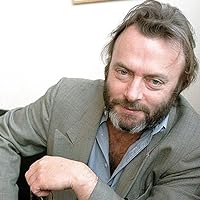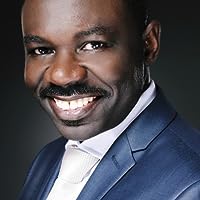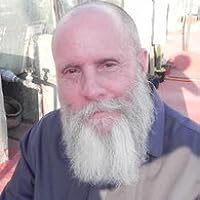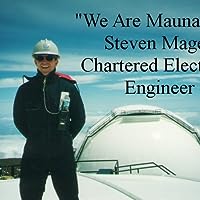Eastern Europe Quotes
Quotes tagged as "eastern-europe"
Showing 1-30 of 35

“So I close this long reflection on what I hope is a not-too-quaveringly semi-Semitic note. When I am at home, I will only enter a synagogue for the bar or bat mitzvah of a friend's child, or in order to have a debate with the faithful. (When I was to be wed, I chose a rabbi named Robert Goldburg, an Einsteinian and a Shakespearean and a Spinozist, who had married Arthur Miller to Marilyn Monroe and had a copy of Marilyn’s conversion certificate. He conducted the ceremony in Victor and Annie Navasky's front room, with David Rieff and Steve Wasserman as my best of men.) I wanted to do something to acknowledge, and to knit up, the broken continuity between me and my German-Polish forebears. When I am traveling, I will stop at the shul if it is in a country where Jews are under threat, or dying out, or were once persecuted. This has taken me down queer and sad little side streets in Morocco and Tunisia and Eritrea and India, and in Damascus and Budapest and Prague and Istanbul, more than once to temples that have recently been desecrated by the new breed of racist Islamic gangster. (I have also had quite serious discussions, with Iraqi Kurdish friends, about the possibility of Jews genuinely returning in friendship to the places in northern Iraq from which they were once expelled.) I hate the idea that the dispossession of one people should be held hostage to the victimhood of another, as it is in the Middle East and as it was in Eastern Europe. But I find myself somehow assuming that Jewishness and 'normality' are in some profound way noncompatible. The most gracious thing said to me when I discovered my family secret was by Martin, who after a long evening of ironic reflection said quite simply: 'Hitch, I find that I am a little envious of you.' I choose to think that this proved, once again, his appreciation for the nuances of risk, uncertainty, ambivalence, and ambiguity. These happen to be the very things that 'security' and 'normality,' rather like the fantasy of salvation, cannot purchase.”
― Hitch 22: A Memoir
― Hitch 22: A Memoir

“Now we will live!” This is what the hungry little boy liked to say, as he toddled along the quiet roadside, or through the empty fields. But the food that he saw was only in his imagination. The wheat had all been taken away, in a heartless campaign of requisitions that began Europe’s era of mass killing. It was 1933, and Joseph Stalin was deliberately starving Soviet Ukraine. The little boy died, as did more than three million other people. “I will meet her,” said a young Soviet man of his wife, “under the ground.” He was right; he was shot after she was, and they were buried among the seven hundred thousand victims of Stalin’s Great Terror of 1937 and 1938. “They asked for my wedding ring, which I….” The Polish officer broke off his diary just before he was executed by the Soviet secret police in 1940. He was one of about two hundred thousand Polish citizens shot by the Soviets or the Germans at the beginning of the Second World War, while Nazi Germany and the Soviet Union jointly occupied his country. Late in 1941, an eleven-year-old Russian girl in Leningrad finished her own humble diary: “Only Tania is left.” Adolf Hitler had betrayed Stalin, her city was under siege by the Germans, and her family were among the four million Soviet citizens the Germans starved to death. The following summer, a twelve-year-old Jewish girl in Belarus wrote a last letter to her father: “I am saying good-bye to you before I die. I am so afraid of this death because they throw small children into the mass graves alive.” She was among the more than five million Jews gassed or shot by the Germans.”
― Bloodlands: Europe Between Hitler and Stalin
― Bloodlands: Europe Between Hitler and Stalin

“And thus to my final and most melancholy point: a great number of Stalin's enforcers and henchmen in Eastern Europe were Jews. And not just a great number, but a great proportion. The proportion was especially high in the secret police and 'security' departments, where no doubt revenge played its own part, as did the ideological attachment to Communism that was so strong among internationally minded Jews at that period: Jews like David Szmulevski. There were reasonably strong indigenous Communist forces in Czechoslovakia and East Germany, but in Hungary and Poland the Communists were a small minority and knew it, were dependent on the Red Army and aware of the fact, and were disproportionately Jewish and widely detested for that reason. Many of the penal labor camps constructed by the Nazis were later used as holding pens for German deportees by the Communists, and some of those who ran these grim places were Jewish. Nobody from Israel or the diaspora who goes to the East of Europe on a family-history fishing-trip should be unaware of the chance that they will find out both much less and much more than the package-tour had promised them. It's easy to say, with Albert Camus, 'neither victims nor executioners.' But real history is more pitiless even than you had been told it was.”
― Hitch 22: A Memoir
― Hitch 22: A Memoir

“I'd grown fond of quoting Václav Havel, the great Czech leader who had said that "hope" was the one thing that people struggling in Eastern Europe needed during the era of Soviet domination.
Havel had said that people struggling for independence wanted money and recognition from other countries; they wanted more criticism of the Soviet empire from the West and more diplomatic pressure. But Havel had said that these were things they wanted; the only thing they needed was hope. Not that pie in the sky stuff, not a preference for optimism over pessimism, but rather "an orientation of the spirit." The kind of hope that creates a willingness to position oneself in a hopeless place and be a witness, that allows one to believe in a better future, even in the face of abusive power. That kind of hope makes one strong.”
― Just Mercy
Havel had said that people struggling for independence wanted money and recognition from other countries; they wanted more criticism of the Soviet empire from the West and more diplomatic pressure. But Havel had said that these were things they wanted; the only thing they needed was hope. Not that pie in the sky stuff, not a preference for optimism over pessimism, but rather "an orientation of the spirit." The kind of hope that creates a willingness to position oneself in a hopeless place and be a witness, that allows one to believe in a better future, even in the face of abusive power. That kind of hope makes one strong.”
― Just Mercy

“I have had my mother's wing of my genetic ancestry analyzed by the National Geographic tracing service and there it all is: the arrow moving northward from the African savannah, skirting the Mediterranean by way of the Levant, and passing through Eastern and Central Europe before crossing to the British Isles. And all of this knowable by an analysis of the cells on the inside of my mouth.
I almost prefer the more rambling and indirect and journalistic investigation, which seems somehow less… deterministic.”
― Hitch 22: A Memoir
I almost prefer the more rambling and indirect and journalistic investigation, which seems somehow less… deterministic.”
― Hitch 22: A Memoir

“Political calculation and local suffering do not entirely explain the participation in these pogroms. Violence against Jews served to bring the Germans and elements of the local non-Jewish populations closer together. Anger was directed, as the Germans wished, toward the Jews, rather than against collaborators with the Soviet regime as such. People who reacted to the Germans' urging knew that they were pleasing their new masters, whether or not they believed that the Jews were responsible for their own woes. By their actions they were confirming the Nazi worldview. The act of killing Jews as revenge for NKVD executions confirmed the Nazi understanding of the Soviet Union as a Jewish state. Violence against Jews also allowed local Estonians, Latvian, Lithuanians, Ukrainians, Belarusians, and Poles who had themselves cooperated with the Soviet regime to escape any such taint. The idea that only Jews served communists was convenient not just for the occupiers but for some of the occupied as well.
Yet this psychic nazification would have been much more difficult without the palpable evidence of Soviet atrocities. The pogroms took place where the Soviets had recently arrived and where Soviet power was recently installed, where for the previous months Soviet organs of coercion had organized arrests, executions, and deportations. They were a joint production, a Nazi edition of a Soviet text.
P. 196”
― Bloodlands: Europe Between Hitler and Stalin
Yet this psychic nazification would have been much more difficult without the palpable evidence of Soviet atrocities. The pogroms took place where the Soviets had recently arrived and where Soviet power was recently installed, where for the previous months Soviet organs of coercion had organized arrests, executions, and deportations. They were a joint production, a Nazi edition of a Soviet text.
P. 196”
― Bloodlands: Europe Between Hitler and Stalin

“If the immediate postwar period had been characterized by violent attacks on the existing institutions of civil society, after 1948 the regimes [of Eastern Europe] began instead to create a new system of state-controlled schools and mass organizations which would envelop their citizens from the moment of birth. Once inside this totalitarian system, it was assumed, the citizens of of the communist states would never want or be able to leave it. They were meant to become, in the sarcastic phrasing of an old Soviet dissident, members of the species Homo sovieticus, Soviet man. Not only would Homo Sovieticus never oppose communism; he could never even conceive of opposing communism.”
― Iron Curtain: The Crushing of Eastern Europe 1944-1956
― Iron Curtain: The Crushing of Eastern Europe 1944-1956

“A little of this caviar finds its way to the fish restaurants around Istanbul's Taksim Square, but the bulk is sent on to the United Arab Emirates to be enjoyed by wealthy Westerners and Arabs in the preposterous hotels that have set new standards in unnecessary opulence.”
― McMafia: Seriously Organised Crime
― McMafia: Seriously Organised Crime

“No, non imiterò mai coloro che cancellano le proprie tracce, ripudiano il proprio passato e sono morti, anche se con equilibrismi intellettuali fanno finta di essere vivi. Le mie radici sono laggiù, all’Est, su questo non v’è alcun dubbio. Anche se trovo difficile e spiacevole spiegare chi sono, bisogna pur tentare di farlo.”
― Native Realm: A Search for Self-Definition
― Native Realm: A Search for Self-Definition

“I returned from the West, and brought home in my nostrils and nerves that benumbing lethargy, imprudent hostility, and arrogant superiority with which the West viewed the fate of Eastern Europe.”
― Memoir of Hungary 1944-1948
― Memoir of Hungary 1944-1948

“When I was a little boy and we were leaving Russia for some reason... my parents told me to say that we're moving to Belarus. Then we came to America and my parents like to say that we're FROM Belarus... I think so they don't hate us for being Russian. I guess we might actually be from Belarus, but I honestly don't know much about it. As they say, little lies become big lies, so most days, I like to think I'm from Paris.”
―
―

“After the fire a gentle whisper” (Kings 19:12). No, I thought, “after the fire just stillness and void.”
― Stories for My Children: A Memoir
― Stories for My Children: A Memoir

“We waited 45 years for the Americans to come and set us free. . . When I was a child, we used to say that even if the Americans were coming in a wheelbarrow, they should be here by now.”
― We Wait You: Waiting on God in Eastern Europe
― We Wait You: Waiting on God in Eastern Europe
“...ha az ember Kelet-Európát tematizálja egy efféle eseményen, úgy érezheti, mintha a Holdról beszélne, azzal a különbséggel, hogy Kelet-Európa ma már senkit sem érdekel. (370-1)”
― Mágneshegy
― Mágneshegy

“John Murphy alifika Moscow tarehe 1/11/1992 saa 11 alfajiri akitokea Cairo, Misri. Wakati huo Moscow kulikuwa na baridi sana. Teksi yake ilipofika Teatralny Proezd, upande wa kusini wa Hoteli ya Metropol – karibu na mojawapo ya minara ya mwanzo ya Kitay-gorod, kitovu kikuu cha biashara cha Moscow ya kale – kwa matatizo ya injini; magaidi wanne, waliokuwa wakimfuatilia kwa gari aina ya Bentley Continental S nyeusi – iliyokuwa na namba za kitemi za B 001 BB 77 RUS mali ya Kiongozi wa CS-Moscow Dmitri Olegushka – toka Uwanja wa Ndege wa Sheremetyevo II wa kaskazini-magharibi mwa jiji la Moscow, waliendelea mbele na kusimama mkabala na Jumba la Maonyesho ya Tamthilia la Bolshoy; kisha wawili kati yao wakashuka na kuingia ndani ya kioski, wawili wakibaki ndani ya gari kuhakikisha John Murphy hawapotei. Magaidi hao wa CS-Moscow, Tawi la Kolonia Santita la Urusi na nchi zote za Ulaya ya Mashariki na baadhi ya nchi za Ulaya ya Kusini, walijua Murphy alishawahisi.”
―
―
“Heiner Müller zeroed in on this contradiction by noting ascerbically that the main economic activity of the Eastern regimes was always the production of state enemies (in other words, the system produced vast numbers of literate, well-educated workers who could not fail to notice the yawning gap between the ideal of a people’s democracy and the despotism of the one-party state).”
― The World is Watching: Video as Multinational Aesthetics, 1968-1995
― The World is Watching: Video as Multinational Aesthetics, 1968-1995

“Magic in the form of Qur'anic numerology (in relation to letters), amulets, scrolls carried on the body, and the repetition of certain Names of Allah a specific number of times, is still widely practiced by some Sheikhs and women Sufi healers throughout Eastern Europe, the Middle and Near East.”
― The Sun at Midnight: The Revealed Mysteries of the Ahlul Bayt Sufis
― The Sun at Midnight: The Revealed Mysteries of the Ahlul Bayt Sufis
“meja je koža
ljudje v vsaki pori
delajo taborišča
ona se nemoteno
pretaka skozi države
nekdo je prepotoval
celo evropo
in od vsakega dobil
enak nasvet
naj se pazi
vzhodnega soseda
na njihovi strani je
konec civilizacije”
― BIĆE BOLJE - BO ŽE
ljudje v vsaki pori
delajo taborišča
ona se nemoteno
pretaka skozi države
nekdo je prepotoval
celo evropo
in od vsakega dobil
enak nasvet
naj se pazi
vzhodnega soseda
na njihovi strani je
konec civilizacije”
― BIĆE BOLJE - BO ŽE
“The town was laid out like a hamantasch with three corners. In the middle of town stood the synagogue; on the left end was the bathhouse, and on the right end the poorhouse.”
―
―

“The first thing I remember about Bucharest is how very dark it was.”
― We Wait You: Waiting on God in Eastern Europe
― We Wait You: Waiting on God in Eastern Europe
“Admit it-the world is mighty wacky. Dan Quayle is a heartbeat away from bravely leading us into the New World Order. Our intelligentsia are running around declaring that we have reached both the End of History and the apex of political evolution-we're the kings of the global jungle. At the same time, sensing
new opportunities, the forces of reptilian nationalism-from Pat Robertson to militant mullahs, from David Duke to the ancient reactionary movements of Eastern Europe-are crawling out from under their rocks, getting facelifts, and learning how to use teleprompters and Stinger missiles. Meanwhile, back in the cradle of democracy, the "opposition" response to all this is to offer a choice between Jerry Brown and None of the Above.”
― Standing Tall in Deep Doo-Doo/a Cartoon Chronicle of Campaign '92 and Bush/Quayle Years
new opportunities, the forces of reptilian nationalism-from Pat Robertson to militant mullahs, from David Duke to the ancient reactionary movements of Eastern Europe-are crawling out from under their rocks, getting facelifts, and learning how to use teleprompters and Stinger missiles. Meanwhile, back in the cradle of democracy, the "opposition" response to all this is to offer a choice between Jerry Brown and None of the Above.”
― Standing Tall in Deep Doo-Doo/a Cartoon Chronicle of Campaign '92 and Bush/Quayle Years

“Faced with their confused glances and naive questions, I saw that there indeed was, between the writers and that public, however benevolent and sympathetic, a visible barrier. The audience simply did not have enough background information to comprehend what the writers sitting in front of them on the podium were saying.
Confronted with such a lack of understanding, I felt that I had no other choice but to hang on to 'my' group, the writers from Eastern Europe. At least they knew what I was talking about; at least we understood each other's problems, if that was of any comfort to a single one of us. And in any case, even if I had loudly screamed that I didn't want to belong to any group at all, the audience would have put me with them. Perhaps for the first time I became aware of how tired I was of constantly being pushed back into 'my place' every time I made an attempt to break out of it.”
― Café Europa: Life After Communism
Confronted with such a lack of understanding, I felt that I had no other choice but to hang on to 'my' group, the writers from Eastern Europe. At least they knew what I was talking about; at least we understood each other's problems, if that was of any comfort to a single one of us. And in any case, even if I had loudly screamed that I didn't want to belong to any group at all, the audience would have put me with them. Perhaps for the first time I became aware of how tired I was of constantly being pushed back into 'my place' every time I made an attempt to break out of it.”
― Café Europa: Life After Communism
“Mistaking cause and effect was the single most critical misreading of the lessons of 1989.”
― The Year That Changed The World: The Untold Story Behind the Fall of the Berlin Wall
― The Year That Changed The World: The Untold Story Behind the Fall of the Berlin Wall
“System change in Eastern Europe and the FSU turned out to be a painful process marked by inflation, unemployment, inequality, criminalisation and state collapse (in some countries). Nevertheless, it brought some concrete benefits (full shops, freedom of all kinds – from religious to travel).”
― Socialist Planning
― Socialist Planning
“… the Warsaw Pact - was a pleasure, because any reason, real or bogus, is good if it makes people hug and kiss rather than slaughter each other.”
―
―
All Quotes
|
My Quotes
|
Add A Quote
Browse By Tag
- Love Quotes 98.5k
- Life Quotes 76.5k
- Inspirational Quotes 73.5k
- Humor Quotes 44k
- Philosophy Quotes 30k
- Inspirational Quotes Quotes 27k
- God Quotes 26.5k
- Truth Quotes 24k
- Wisdom Quotes 24k
- Romance Quotes 23.5k
- Poetry Quotes 22.5k
- Death Quotes 20k
- Life Lessons Quotes 20k
- Happiness Quotes 19k
- Quotes Quotes 18k
- Faith Quotes 18k
- Hope Quotes 18k
- Inspiration Quotes 17k
- Spirituality Quotes 15k
- Religion Quotes 15k
- Motivational Quotes 15k
- Writing Quotes 15k
- Relationships Quotes 14.5k
- Life Quotes Quotes 14.5k
- Love Quotes Quotes 14k
- Success Quotes 13.5k
- Time Quotes 12.5k
- Motivation Quotes 12.5k
- Science Quotes 11.5k
- Motivational Quotes Quotes 11.5k



